快速入门-API使用文档
1. 访问模型广场
登录智算云平台-大模型平台 https://ai.paratera.com/#/lms/model
通过模型广场查看当前支持的模型信息(模型详情、价格、TPM/RPM限制等信息)
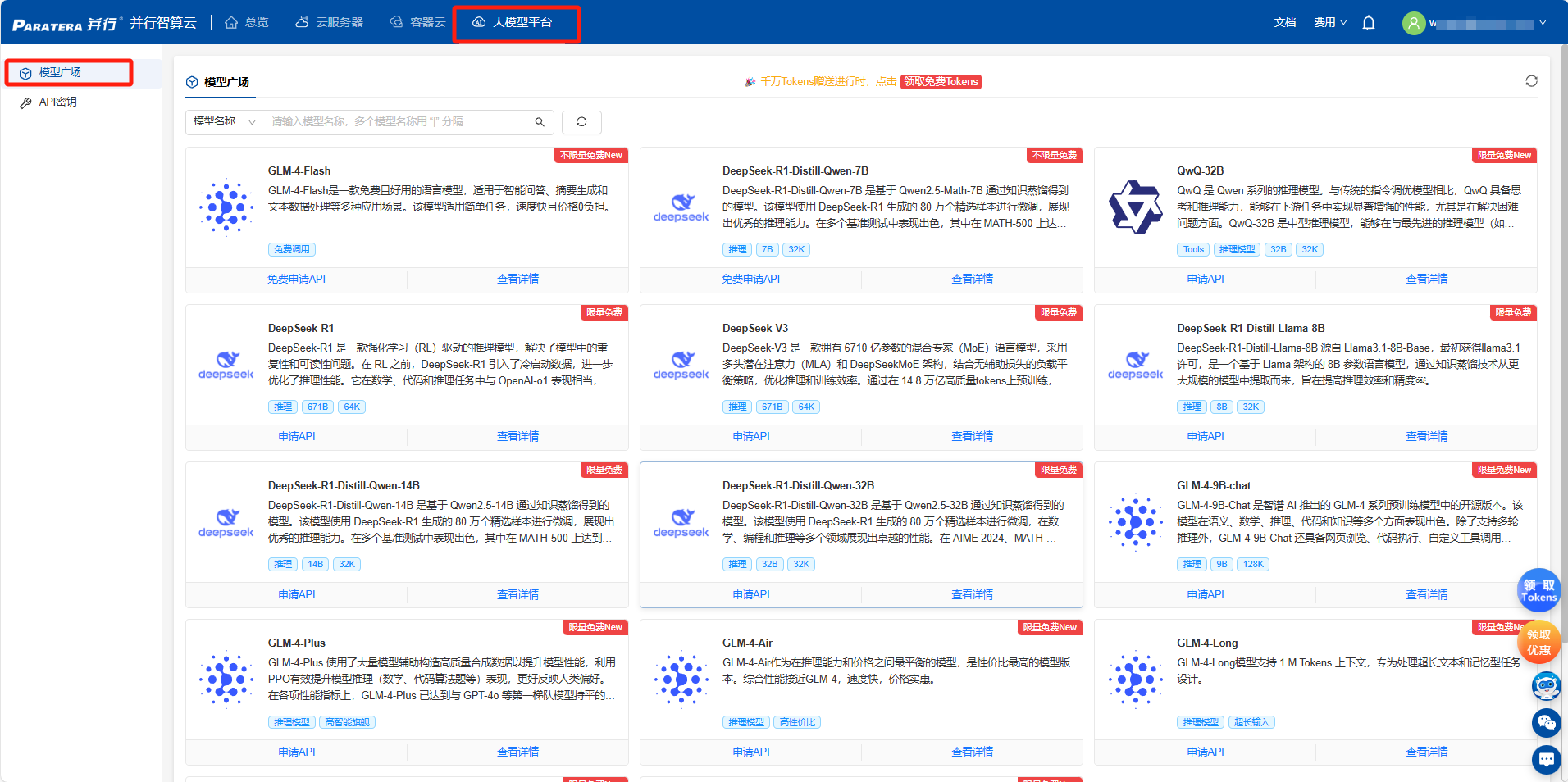
2. 获取并配置API_Key
进入【API密钥】页面,通过【新建API密钥】==>【填写密钥描述】==>【立即申请】,即可获取您的专属密钥信息。
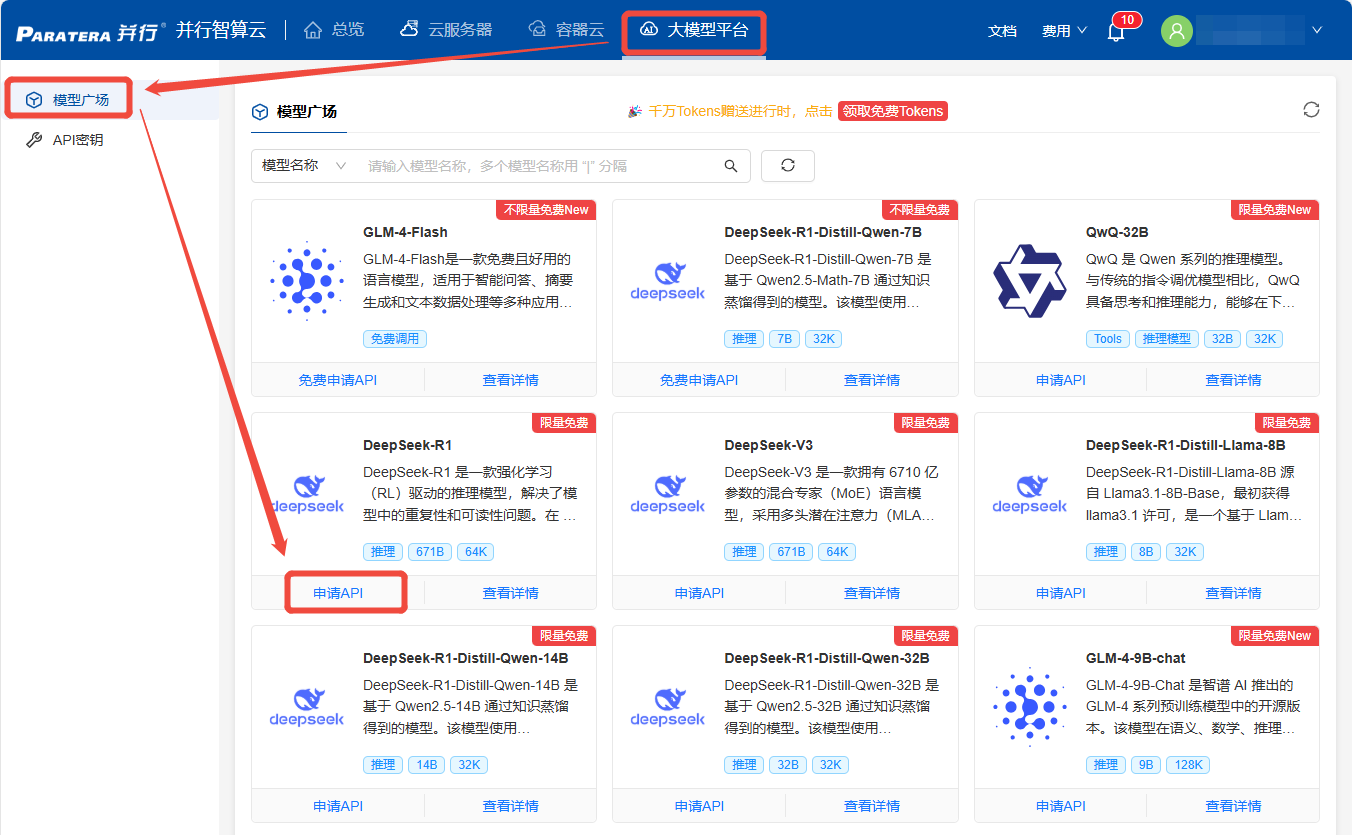


3. 多种API接入形式
支持2种使用方式:本地客户端接入、代码接入
3.1 本地客户端接入
支持三种主流工具:Chatbox、Cherry Studio、AnythingLLM
3.1.1 Chatbox接入
(1) 本地下载安装Chatbox
(2) 选择模型提供方为OpenAI API
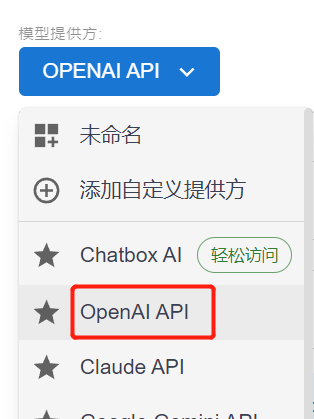
(3) 输入API密钥(API KEY)、API 域名(API URL)、模型名
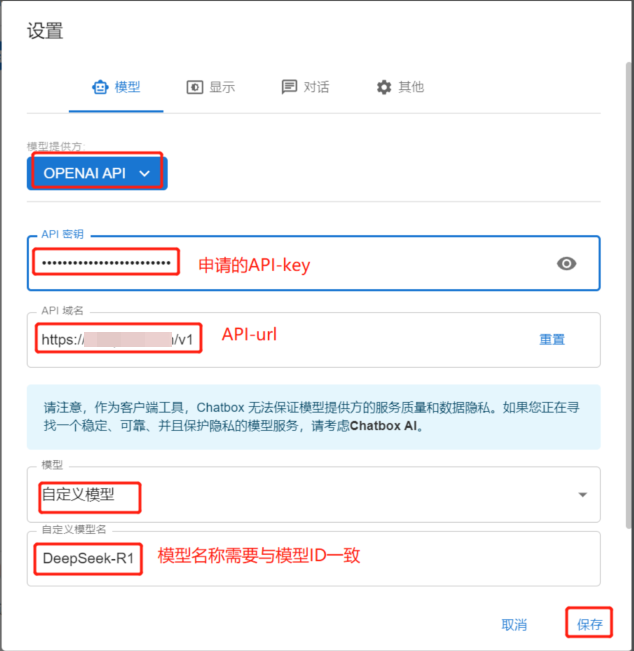
注:如果首次进入chatbox时,忘记选择【使用自己的模型】,可在对话窗口左下角【设置】里修改模型。
(4) 开启对话等功能使用
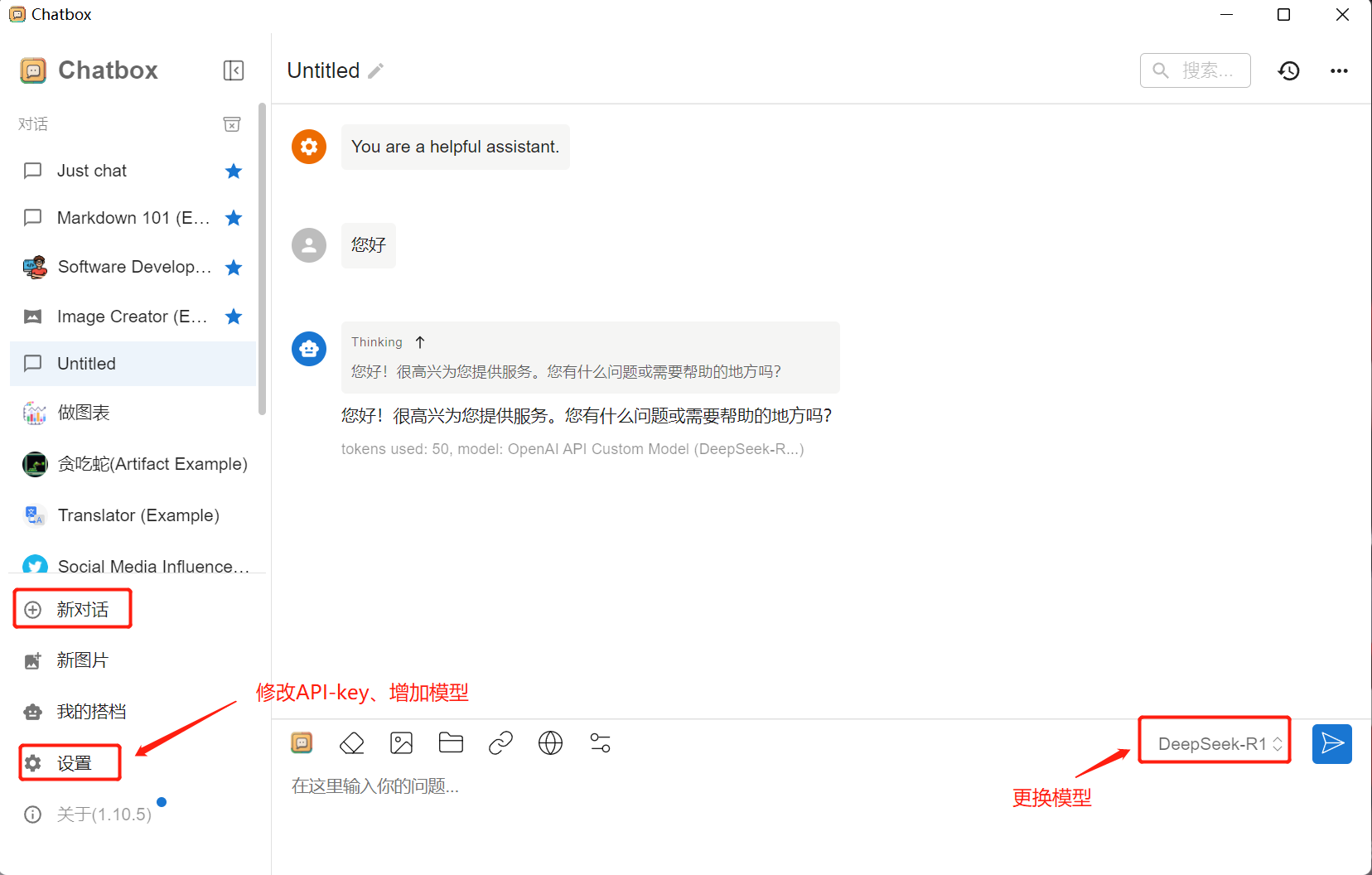
3.1.2 Cherry Studio接入
(1) 本地下载安装Cherry Studio
(2) 选择模型提供方为OpenAI
(3) 输入API密钥(API KEY)、API 地址(API URL)、模型名
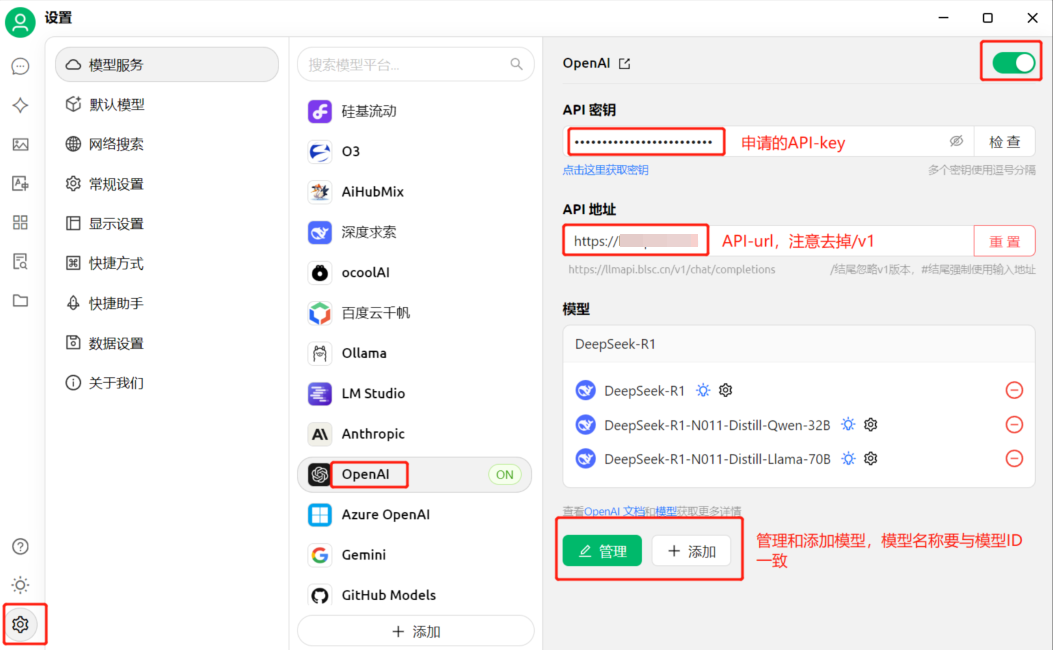
注:如果首次进入Cherry Studio时,忘记选择【使用自己的模型】,可在对话窗口左下角【齿轮】里修改模型。
(4) 开启对话等功能使用
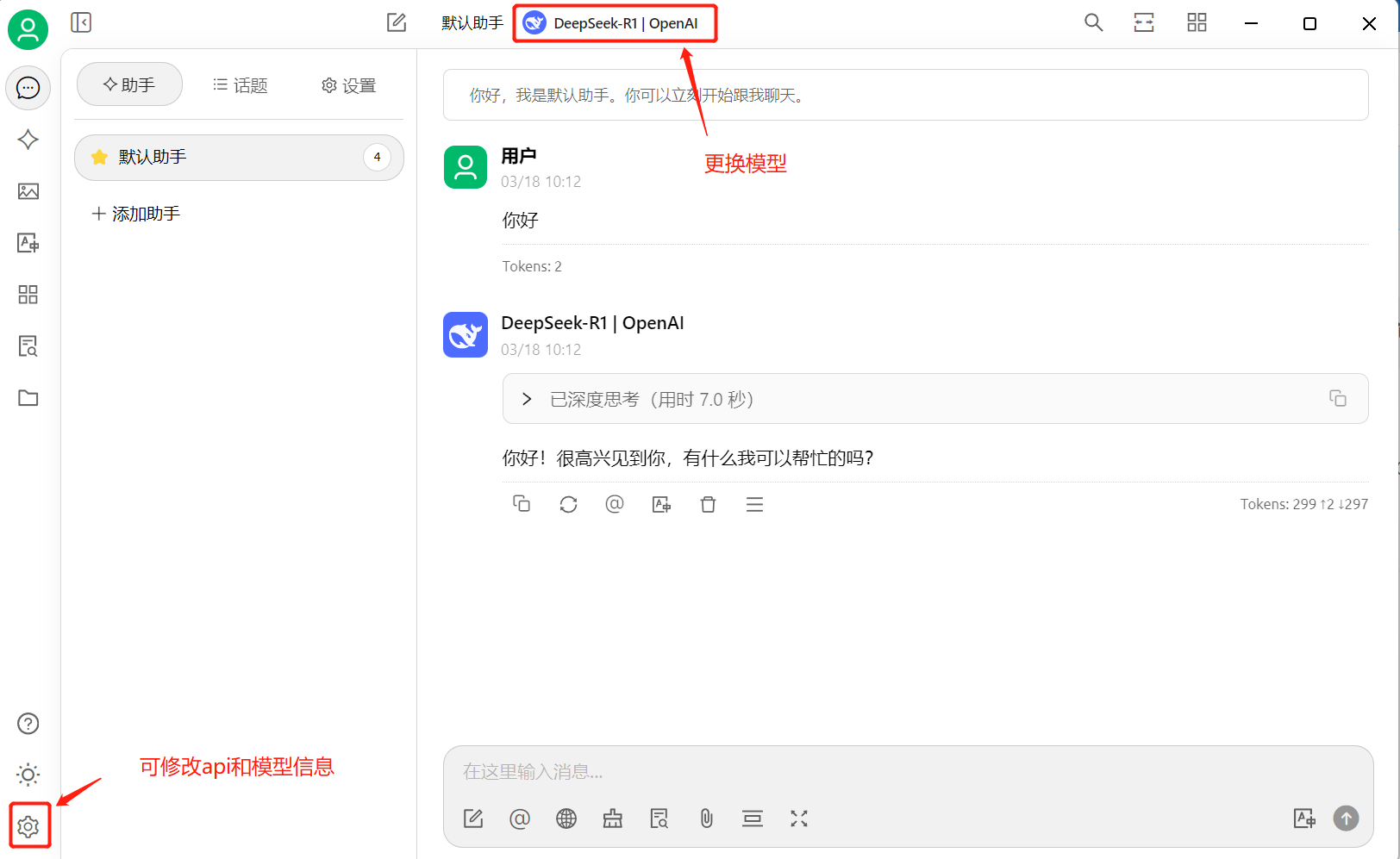
3.1.3 AnythingLLM接入
(1) 本地下载安装AnythingLLM
(2) 首次安装设置界面,选择Generic OpenAI,输入API KEY、API URL、模型名
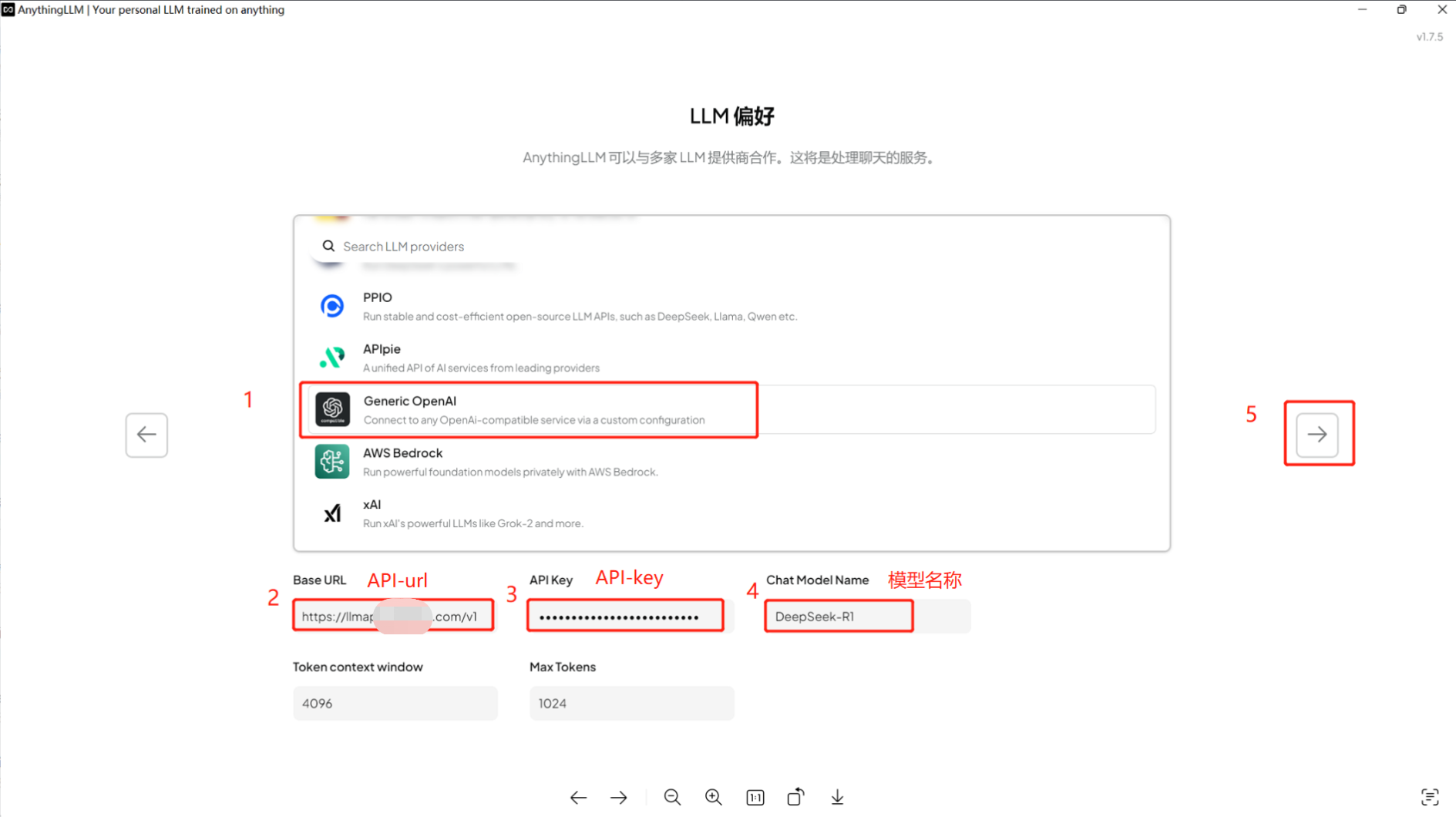
(3) 更改设置,选择左下角第四个图标
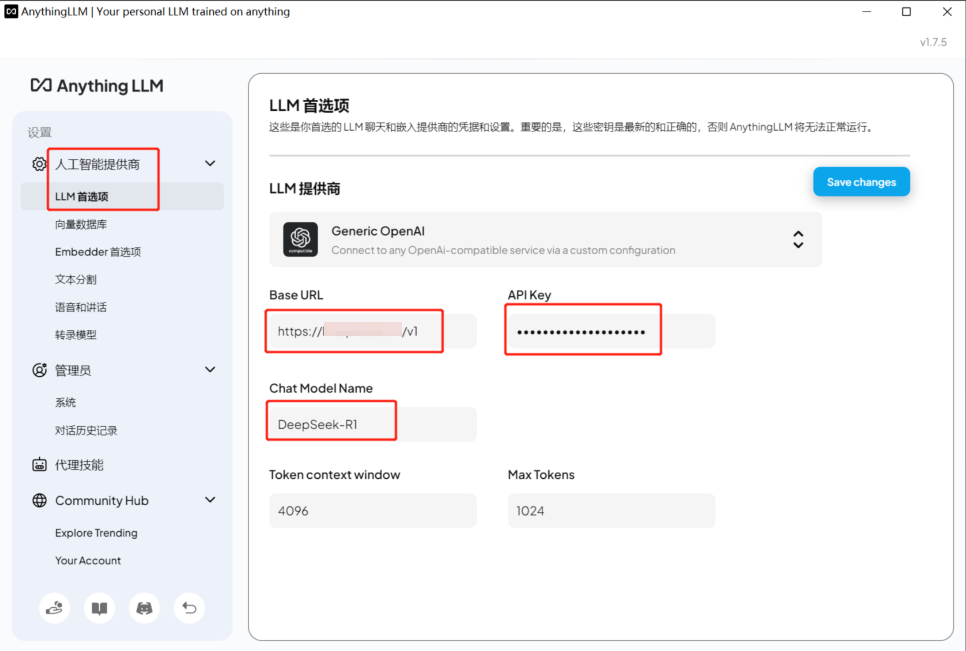
(4) 开启对话等功能使用
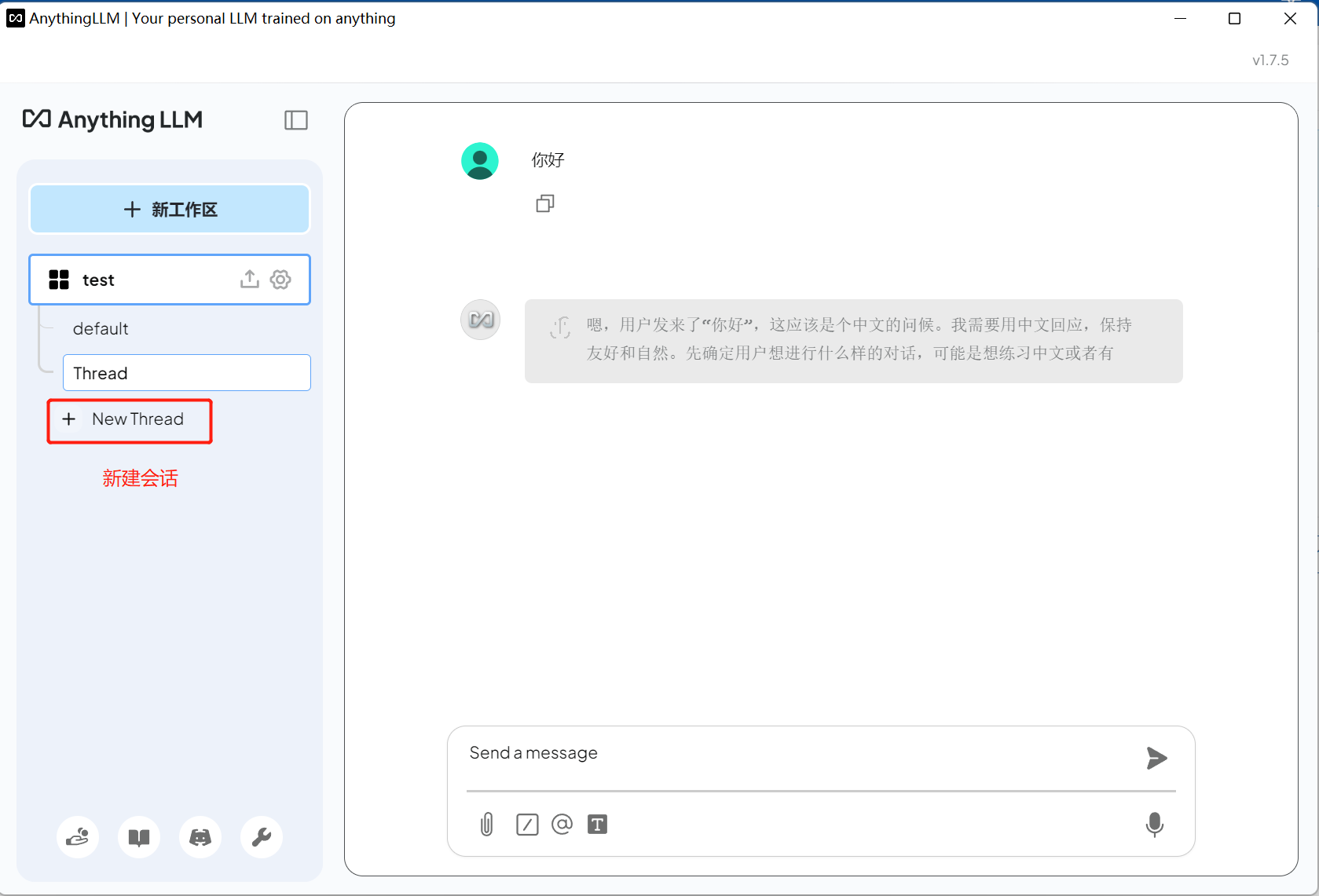
3.2 代码接入
支持curl、python、golang、java、nodejs等
3.2.1 curl接入
查询所有可用模型
curl --request GET \
--url [hostname]/v1/models \
--header 'authorization: Bearer 申请到的key' \
--header 'content-type: application/json'推理
curl --request POST \
--url [hostname]/chat/completions \
--header 'authorization: Bearer 申请到的key' \
--header 'content-type: application/json' \
--data '{
"model": "模型ID",
"messages": [
{
"role": "user",
"content": "Hello World"
}
]
}'3.2.2 python接入
import openai
client = openai.OpenAI(
api_key="申请到的key",
base_url="[hostname]/v1/"
)
response = client.chat.completions.create(
model="模型ID", # model to send to the proxy
messages=[{"role": "user", "content": "Hello World"}],
)
print(response)3.2.3 golang接入
package main
import (
"bytes"
"encoding/json"
"fmt"
"io/ioutil"
"net/http"
)
func main() {
url := "[hostname]/v1/chat/completions"
// Define and marshal the payload
payload, _ := json.Marshal(map[string]interface{}{
"model": "模型ID",
"messages": []map[string]string{{
"role": "user",
"content": "Hello World",
}},
"stream": false,
"max_tokens": 512,
"temperature": 0.6,
})
// Create and send the request
req, _ := http.NewRequest("POST", url, bytes.NewBuffer(payload))
req.Header.Set("Authorization", "Bearer 申请的api-key")
req.Header.Set("Content-Type", "application/json")
res, err := http.DefaultClient.Do(req)
if err != nil {
fmt.Println("Error:", err)
return
}
defer res.Body.Close()
// Read and print the response
body, _ := ioutil.ReadAll(res.Body)
fmt.Println("Response:", string(body))
}3.2.4 java 接入
import com.mashape.unirest.http.HttpResponse;
import com.mashape.unirest.http.Unirest;
import org.json.JSONObject;
import org.json.JSONArray;
public class Test {
public static void main(String[] args) throws Exception{
JSONObject body = new JSONObject()
.put("model", "模型ID")
.put("messages", new JSONArray().put(new JSONObject().put("role", "user").put("content", "Hello World")))
.put("stream", false)
.put("max_tokens", 512)
.put("temperature", 0.6);
HttpResponse<String> response = Unirest.post("[hostname]/v1/chat/completions")
.header("Authorization", "Bearer 申请的api-key")
.header("Content-Type", "application/json")
.body(body.())
.asString();
System.out.println(response.getBody());
}
}3.2.5 nodejs 接入
const axios = require('axios');
const url = '[hostname]/v1/chat/completions';
const payload = {
model: '模型ID',
messages: [
{
role: 'user',
content: 'Hello world',
},
],
stream: false,
max_tokens: 512,
temperature: 0.6,
};
axios
.post(url, payload, {
headers: {
Authorization: 'Bearer 申请的api-key',
'Content-Type': 'application/json',
},
})
.then((response) => {
console.log('Response Status:', response.status);
console.log('Response Body:', response.data.choices[0].message.content );
})
.catch((err) => {
console.error('Error:', err);
});